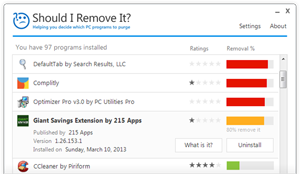Import table
advapi32.dll
TraceMessage, GetTraceEnableFlags, GetTraceEnableLevel, GetTraceLoggerHandle, RegisterTraceGuidsW, UnregisterTraceGuids, EventRegister, EventUnregister, RegDeleteKeyValueW, RegGetValueW, RegSetKeyValueW, RegCloseKey, RegEnumKeyExW, RegOpenKeyExW, RegEnumValueW, EventWrite
bcrypt.dll
BCryptDestroyHash, BCryptCloseAlgorithmProvider, BCryptOpenAlgorithmProvider, BCryptFinishHash, BCryptGetProperty, BCryptCreateHash, BCryptHashData
devobj.dll
DevObjGetDeviceProperty, DevObjOpenDeviceInfo, DevObjCreateDeviceInfoList, DevObjDestroyDeviceInfoList
dmrc.dll
DMrcQueryModelId, DMrcGetProperties, DMrcQueryClose, DMrcInit, DMrcExit, DMrcQueryHardwareId
kernel32.dll
GlobalAlloc, AcquireSRWLockShared, ReleaseSRWLockShared, GetComputerNameExW, SetThreadpoolTimer, CloseThreadpoolTimer, WaitForThreadpoolTimerCallbacks, CloseThreadpoolWork, WaitForThreadpoolWorkCallbacks, ResetEvent, SubmitThreadpoolWork, CreateThreadpoolWork, GlobalFree, ReadFile, WriteFile, SetFilePointerEx, GetFileSizeEx, WaitForSingleObject, GetCurrentProcess, CreateFileW, InterlockedIncrement, InterlockedDecrement, SetEvent, CloseHandle, ReleaseSRWLockExclusive, AcquireSRWLockExclusive, InitializeSRWLock, DuplicateHandle, GetTickCount, CreateEventW, CreateThreadpoolTimer, GetLastError, InterlockedExchange, MultiByteToWideChar, GetSystemFirmwareTable, UnhandledExceptionFilter, TerminateProcess, GetSystemTimeAsFileTime, GetCurrentProcessId, GetCurrentThreadId, QueryPerformanceCounter, Sleep, GetModuleHandleA, SetUnhandledExceptionFilter, GetStartupInfoA, InterlockedCompareExchange
msvcrt.dll
DllMain
ole32.dll
CoAddRefServerProcess, CoReleaseServerProcess, CoUninitialize, CLSIDFromString, IIDFromString, StringFromIID, StringFromGUID2, CoTaskMemFree, CoTaskMemAlloc, PropVariantClear, CreateStreamOnHGlobal, CoCreateInstance, CoInitializeEx, CoRegisterClassObject, CoRevokeClassObject
propsys.dll
PSPropertyKeyFromString
user32.dll
GetDisplayConfigBufferSizes, DisplayConfigGetDeviceInfo, QueryDisplayConfig
xmllite.dll
CreateXmlReader

